Berikaoba: Spring Fertility Festival with Mud, Whips & Masks
Berikaoba is an ancient pagan festival in Georgia that drives winter away and welcomes a fertile new season. Long lost in the past decades across the country, the tiny village of Didi Chailuri in Kakheti never stopped the custom. And that’s where you want to be to experience the chaotic madness, yet quite a fun event.
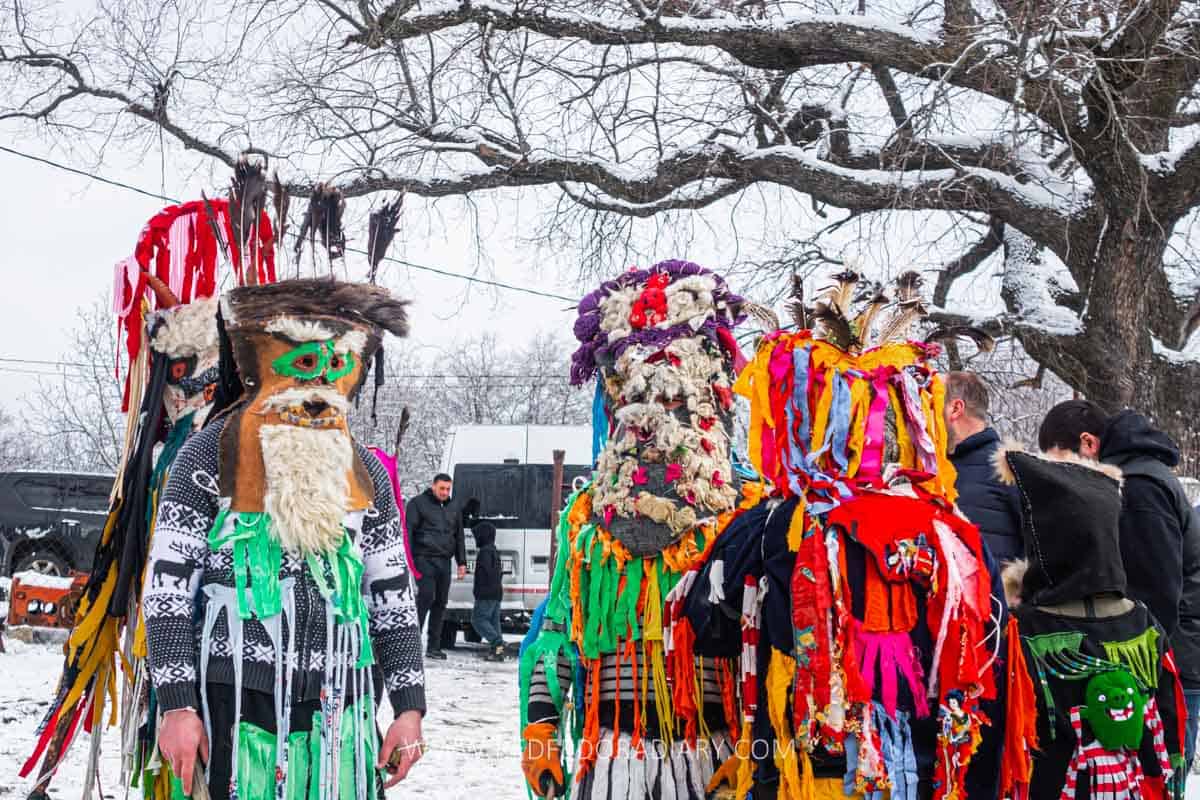
As a kid, I remember seeing them even in Tbilisi, blocking streets, demanding money, and shouting their hearts out. I don’t recall when it stopped, but I last saw them probably decades ago. Luckily, a few years ago, a friend of mine, Melanie Hamilton, who has an incredible knack for seeking out cultural traditions, learned about Didi Chailuri.
In 2023, I witnessed the Berikaoba festival as an adult and even arranged transportation for my readers and social media followers who wanted to participate. We had a spectacular day!
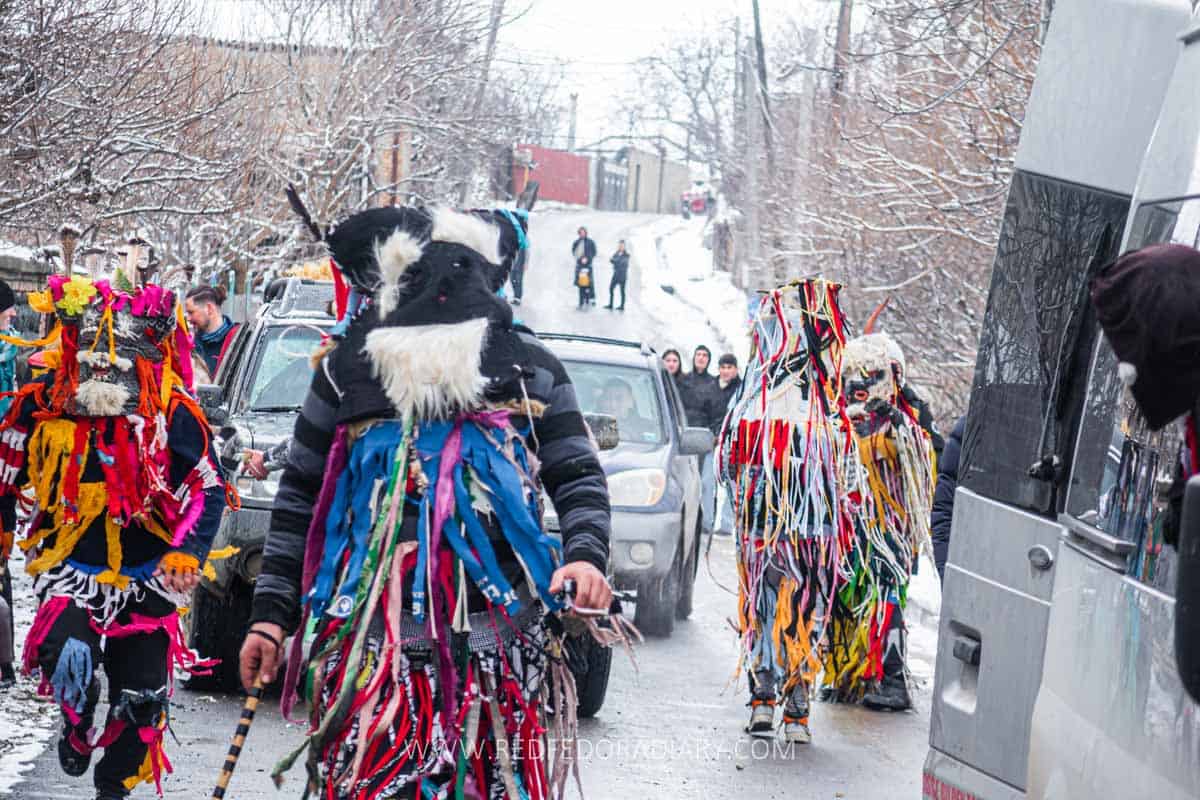
I might be organizing the transfer for Berikaoba 2026, so if you want to join, reach out either via email or Facebook/Instagram.
After all, Berikaoba has been Georgia’s Intangible Cultural Heritage since 2013.
My Travel Essentials
Get an eVisa: Check if you need one at iVisa and fill out the form to get your eVisa easily.
Book a flight: I use Skyscanner or WayAway. The latter offers cashback with a Plus membership.
Airport transfers: Avoid the hassle of public transport and pre-book a transfer with Gotrip.
Reserve a hotel: My go-to platform for hotels or apartments is Booking.com.
Wine tours: Eat This! Tours offer premium wine tours. Use code RFD5 to get 5% OFF.
Hiking & culture tours: WT Georgia is the best for unique trips. Email them Red Fedora & get 10% OFF.
Find best-suited tours: For other tours, entrance tickets, and activities, I use Viator or Get Your Guide.
Rent a car: With affordable prices, Local Rent is one of the best car rental platforms.
Hire a driver: GoTrip is ideal for long-distance private transfers at very reasonable prices.
Debit card: I have Wise (an alternative to Revolut) for local money withdrawals without hidden fees or high exchange rates.
eSIM: To avoid heavy roaming fees, use Airalo or Saily. Compare prices and GB packages. Use BAIA2592 on Airalo and BAIAIR6152 on Saily to get 3 USD on both.
Travel insurance: SafetyWing covers health insurance and has add-ons for adventure sports and electronics theft coverage.
Disclaimer: Some of the links in this post are affiliate links, which means I may earn a small commission if you buy something through them—at no extra cost to you. It helps support my blog and lets me share real, first-hand travel tips. Learn more
Berikaoba 2026 essentials
- Date: February 22
- Location: Didi Chailuri village in Kakheti, an hour drive from Tbilisi
- Food & drink: Free, but donations are highly encouraged
- Best transport option: self-drive (rent a car at LocalRent) or use the GoTrip transfer service.
What is Berikaoba
Berikaoba is an impromptu masqueraded folk performance rooted in the pagan celebration of fertility and rebirth. Unfortunately, the festival hasn’t been researched thoroughly, and it is hard to know when it started, why, or how.

But judging from word-of-mouth storytelling, it’s a spring festival celebrating fertility for both people and crops in the upcoming season/year, dating back 2500 or more years.
The name comes from a Common Kartvelian root ber (ბერ), meaning “a child,” and typically involves several men, Berikas, disguised as animals or other creatures.

In early spring, when almond trees began to blossom, and the ground was covered with fresh, tiny grass, the men from the village, old and young, would gather to prepare for a festival to praise spring.
Participants were selected based on their performance in the previous year and would take new Berikas based on their skills. Once the list was complete, they’d begin preparing costumes and masks.
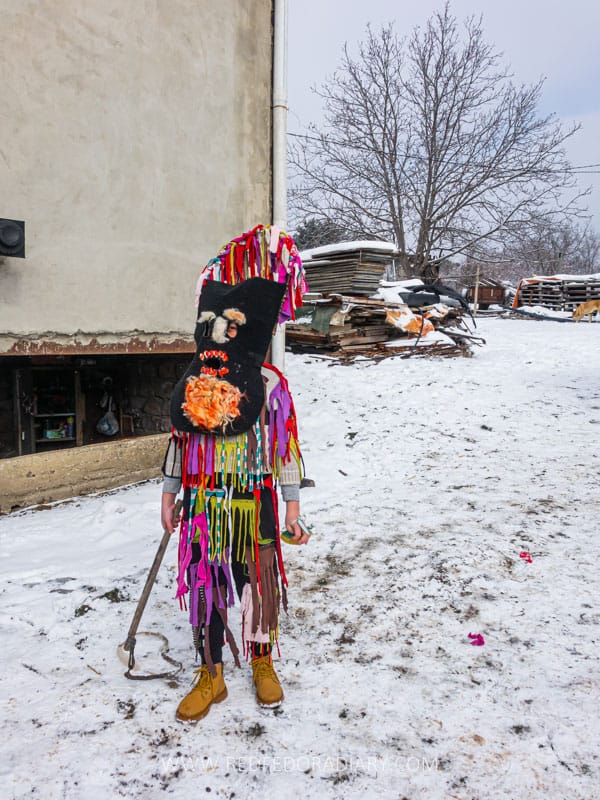
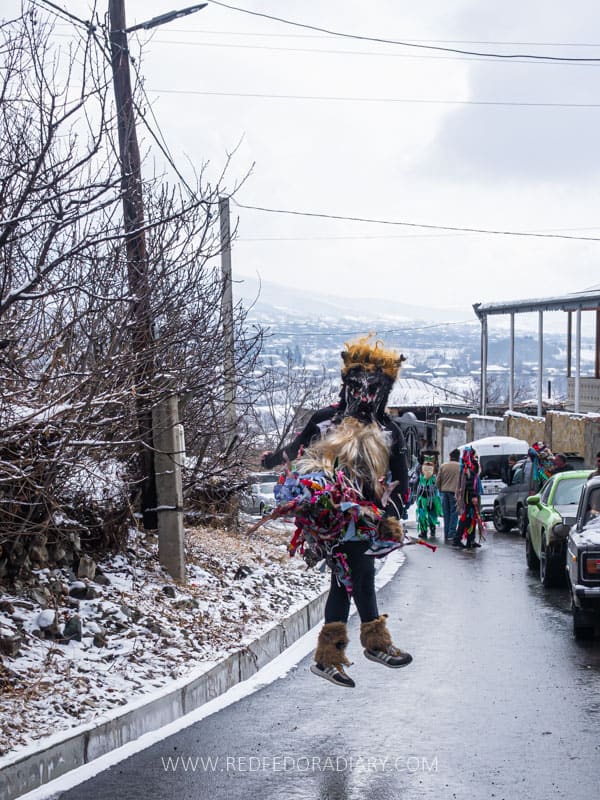
Back in the day, the scenes of Berikaoba ranged from explicitly erotic nature and reproduction ritual to social protest and political satire.
Both masks and costumes for the mysterious character were primarily made of animal hide; animal skulls, horns, tails, and feathers were typical. To add color to their attire, they also used ribbons and bells.

I was told that, in the past, Berikas also wore a phallic-shaped pendant made of wood, bone, or horn that hung from their belts. Moreover, each region of Georgia used slightly different ornaments and items to decorate its attire. For instance, Imeretian Berikas would wear triangle-shaped leather hat-masks.
Over time, the theme, customs, costumes, and parade have changed, but the main highlights have been kept from generation to generation. Today, Berikaoba has become an agricultural holiday marking the arrival of spring.

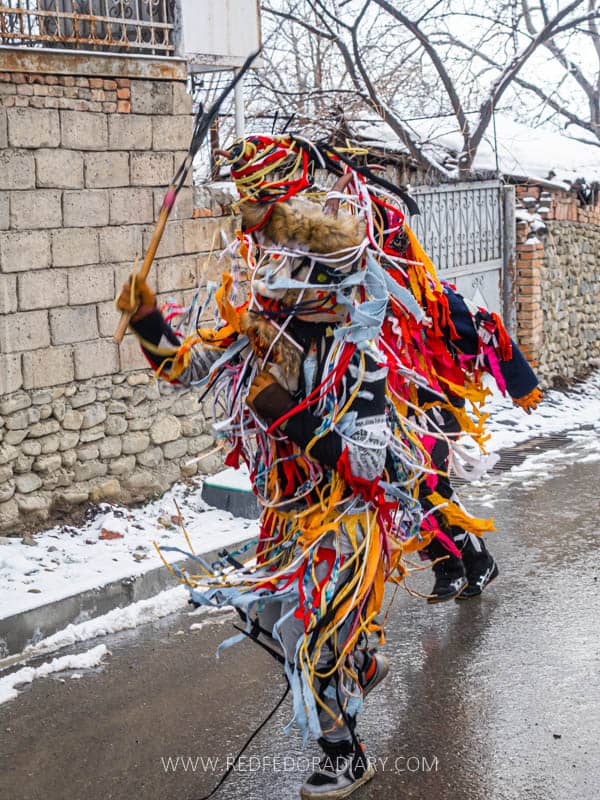
Berikas are still the primary characters of the event – they are the ones who scare the winter away, welcome spring, and demand gifts from the locals in exchange for a bountiful spring.
Dressed in upcycled clothes made of old materials cut into strips and stitched onto numerous layers of jeans, trousers, and pullovers, Berikas wear masks from old pillow covers, carpets, and t-shirts. They also have other decorative items, such as feathers, worn-out stuffed animals, doll heads, and sheephide, to name a few.
Berikaoba in Didi Chailuri – what to expect
Didi Chailuri, with fewer than 1,000 inhabitants, is one of the five villages in Georgia that still celebrate Berikaoba. Organized by the local history teacher Eka Chikadze-Veshapidze, the Berikaoba has grown in size to attract visitors and preserve the tradition.

Berikas, in the most chaotic way possible, start in the morning from the church of Didi Chailuri and move from door to door to pick the gifts – homemade wine, flour, bread, eggs, a few coins, basically whatever the family can offer them.
Entire families, from the oldest to the youngest, wait at their doors with gifts, excited for the event. Seeing this sleepy village come to life on Berikaoba is sheer joy!
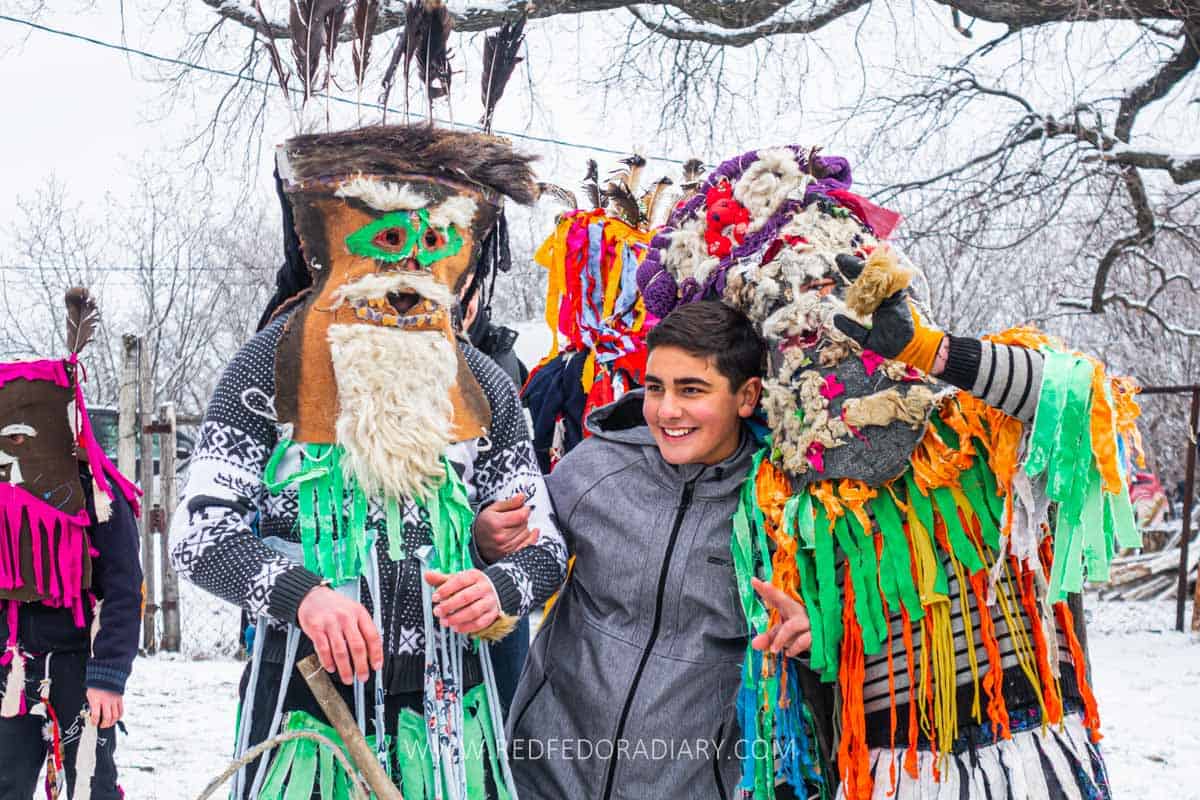
On their way, they dance, jump into puddles, growl, and use the rope whips to smack into the dry pavement or dirt road to bring noise and havoc, accompanied by chattering in high-pitched voices.
They also use these whips to keep spectators away as they walk down the main street. They are fears, so be mindful not to get whipped by chance.
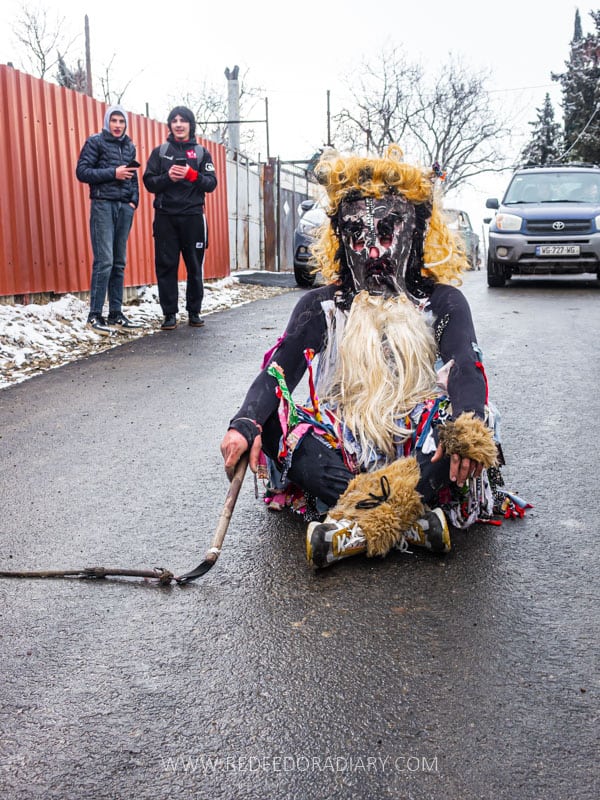
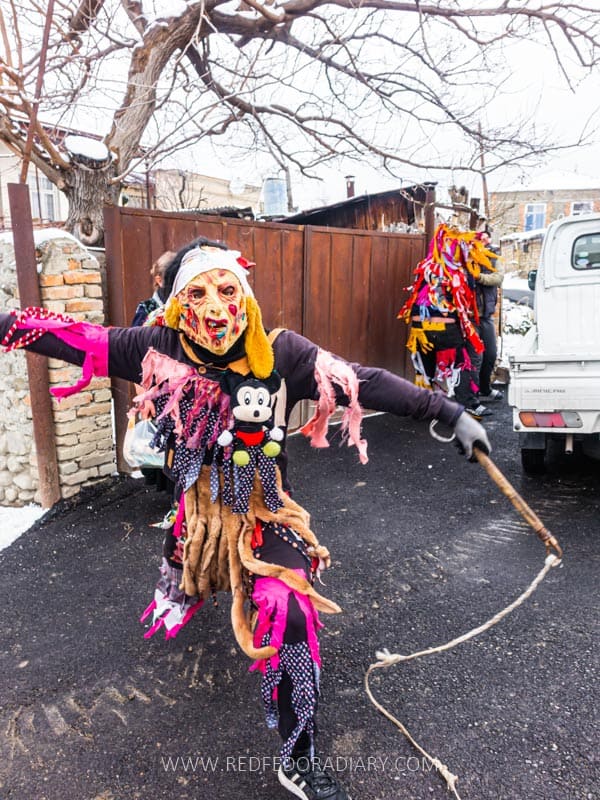
In return for the gifts from the locals, they also smear mud on your face, hands, and arms as a sign of blessing you. And in case of offending a Berika and not providing enough donations, they will roll on the ground, cursing you and your family.
Depending on the year and the desire, Berikaoba might also include a staged play that references historical and political events in Georgian history. Most often indicating the several invasions we’ve been through and survived. This was not the case in 2023.
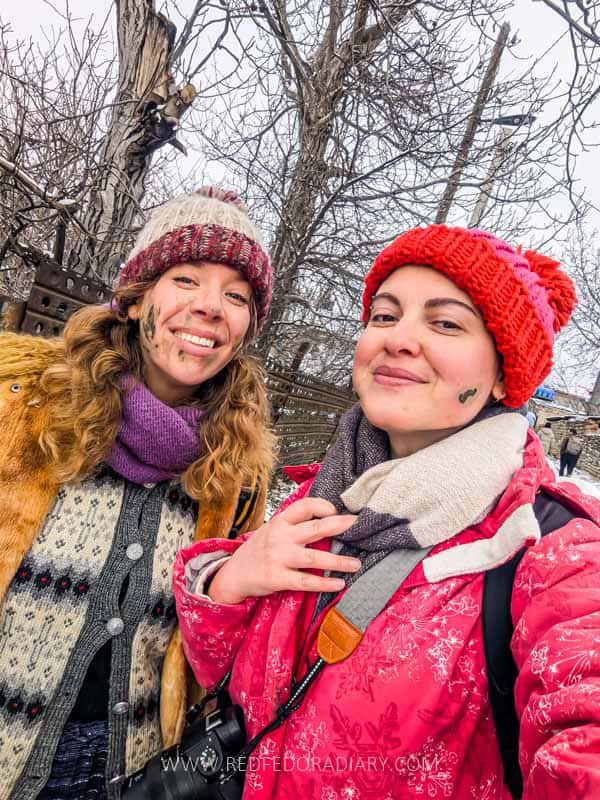
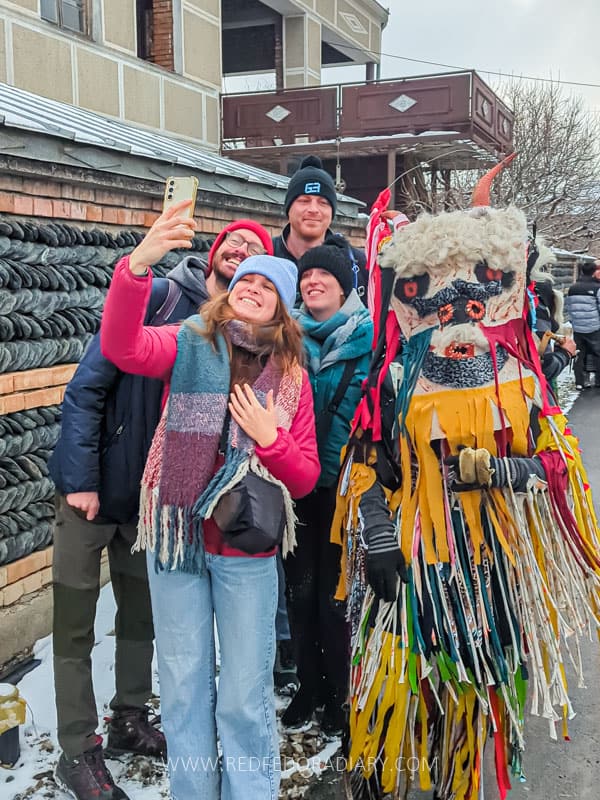
The procession moves slowly and takes around 3 hours to complete. Meanwhile, other activities await the visitors in the big field of Didi Chailuri.
The highlight is local wrestling, Chidaoba, an ancient martial art known for its brave code of conduct, accompanied by folk instruments and the Georgian drum, the doli. Local boys of all ages participate in the wrestling to win sheep.
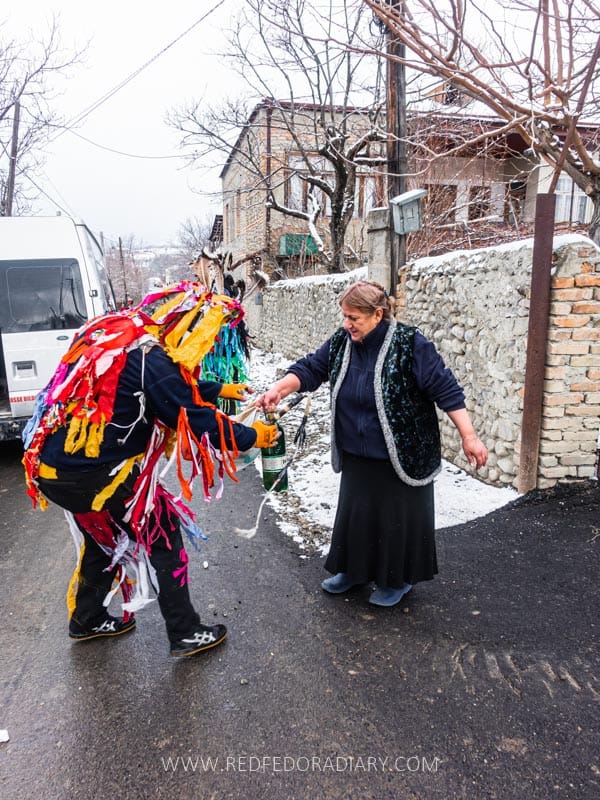
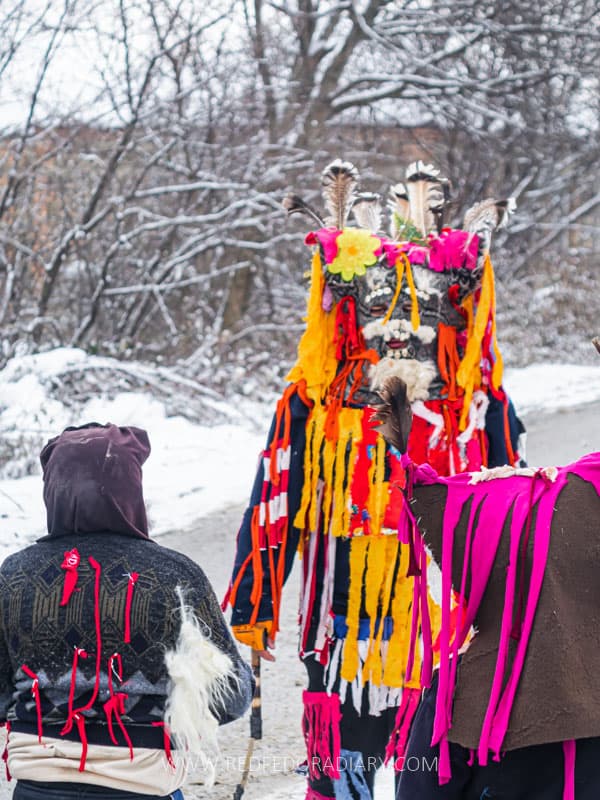
Since 2018, Chidaoba has been listed on UNESCO’s Representative List of Intangible Cultural Heritage of Humanity.
Once done with the door-to-door parade, Berikas come to the field and make one last round of chaotic madness they are known for before relaxing and socializing with locals and visitors.
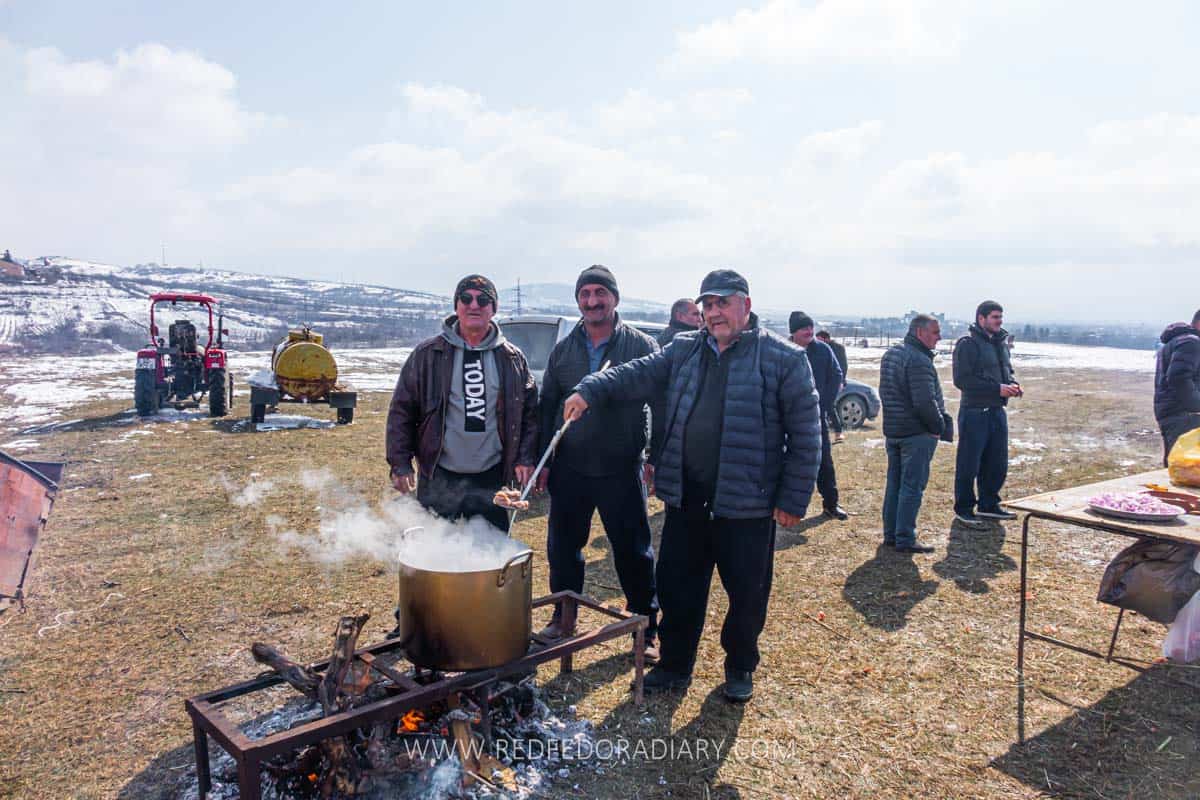
There’s also wine and food provided, usually for free, because the festival doesn’t receive any funding, and, as Eka has told me many times, the village locals donate products and cover the expenses. In 2023, the Municipality bought the sheep as an award for the wrestling winner.
I pressed her to put the donation boxes last year as she felt shy about putting a price tag on food and wine. That’s your Georgian hospitality at its best, so I highly encourage you to make donations to keep this going!
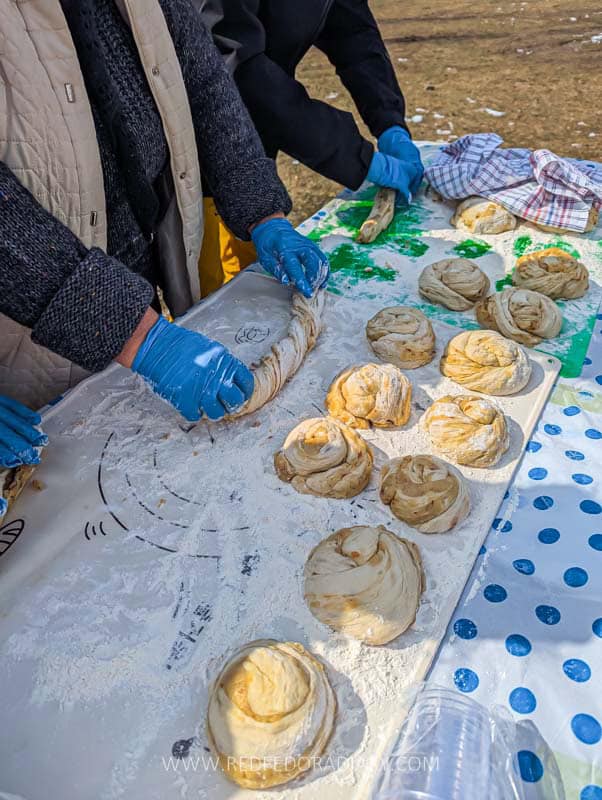
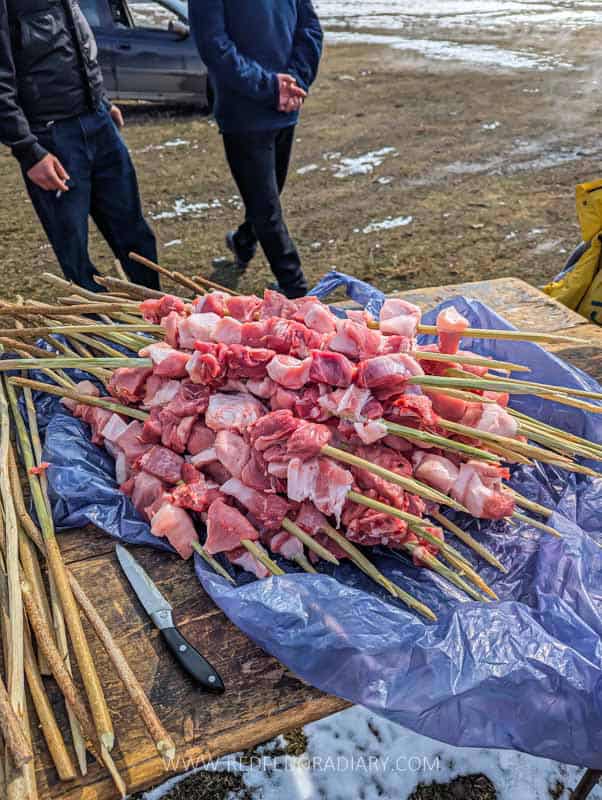
The night before, Eka makes her famous savory bread, kada, dough, which you can help bake over an open fire in clay pots. It’s heavily delicious and finishes very fast!
There’s also mtsvadi (grilled meat on a skewer), Shoti bread, cheese, snacks, and tatara, the grape juice to dip a string of walnuts and make churchkhela. Some of the locals also bring out churchkhela and wine to sell.
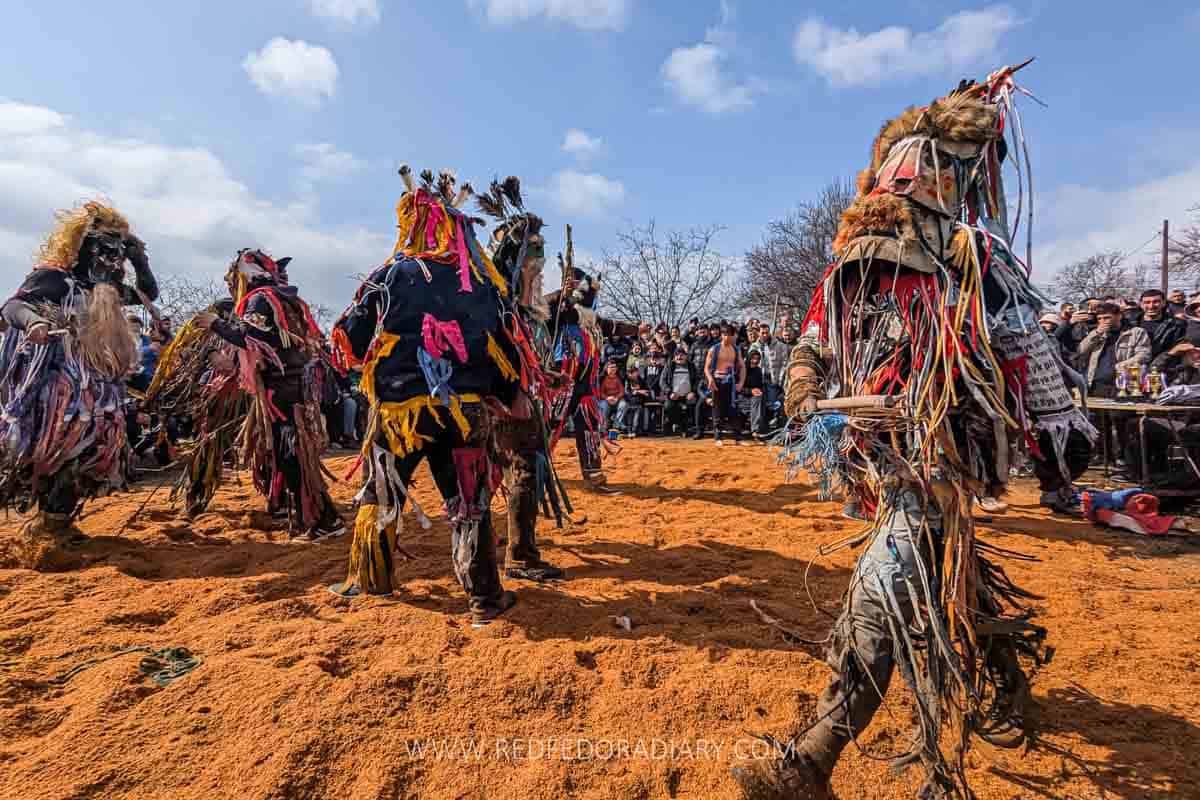
By mid-afternoon, when the wrestling champion is appointed, food and wine are consumed, and the festival slowly comes to an end. The locals sporadically return home, and the Berikas take off their masks, signaling the end of the celebration.
Berikaoba 2026 practical info
The day of Berikaoba falls on a Sunday, 50 days before Orthodox Easter in Georgia. Berikaoba 2026 is scheduled for February 22, starting around 10-11 am.
Sadly, there is no organized tour for you to join just yet. As mentioned earlier, I posted on my social channels last year and hired a car to bring them to the event. I will do the same yearly, so you can always reach out and ask.
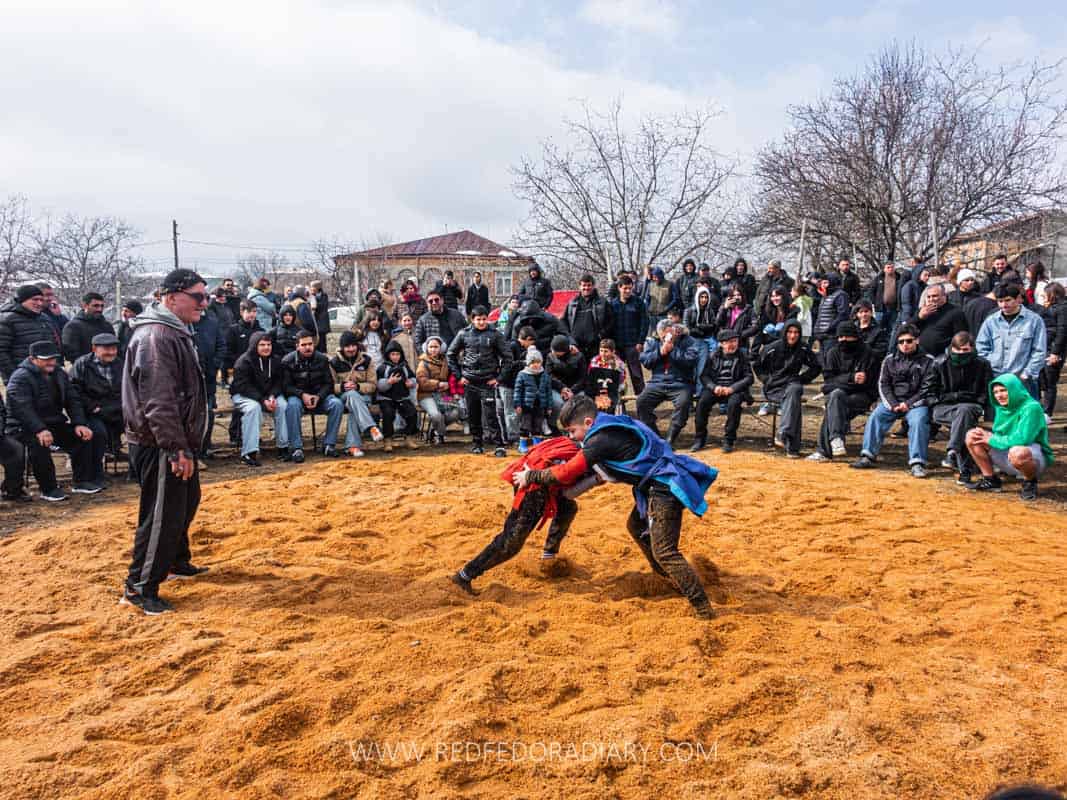
I have close contact with Eka, the organizer, and have first-hand information on what Berikaoba 2026 will look like. I won’t spoil the surprise, but I’ll say this – it will be bigger with more entertainment and shows, including Chidaoba.
Eka will make kada dough again to bake and serve the visitors. The locals will donate food, wine, and tatara, and the wooden stalls will sell local homemade products.

There will also be a few donation boxes, so in return for their implacable Georgian hospitality, I can’t stress out enough how important your donation and financial support are for the community to keep the tradition going.
As it did last year, the Municipality will support the festival by providing essential infrastructure, such as toilets and trash bins. As Eka tells me, despite the Municipality’s desire to be more involved in the festival, she and the whole village want to keep Berikaoba more social, cultural, and public-oriented.
How to get to Didi Chailuri
Didi Chailuri is about 66 km from Tbilisi and takes about 1:15-1:30 hrs to get there, depending on traffic. It may take a bit longer with a marshrutka.
Car – the best and easiest way to get to Didi Chailuri from Tbilisi is to self-drive. You can rent a car at LocalRent for a day at affordable prices if you don’t own a car.
GoTrip is a service I used when I arranged a transfer in 2023. Think of it as a long-distance taxi with very reasonable prices, where the driver will wait for you and bring you back.
You can’t find Didi Chailuri in the drop-down menu when booking the driver. Instead, put Manavi and write a comment that your destination is Didi Chailuri, 6km from Manavi, and you should be fine. That’s precisely what I did. Book the transfer here.
Shared taxis to Kakheti from Isani metro – these taxis go to various cities in Kakheti and are another convenient way to get there. You can take any taxi to Sighnaghi, Gurjaani, Manavi, and Dedoplitskharo.
You can also take a shared taxi to Telavi, but you’d need to ask the driver whether he is bypassing Gombori. Going via Gombori to Telavi is not what you want.
The driver will most likely drop you off on the highway at the road leading to Didi Chailuri. From there, you have a 20 min walk to the center of the village.

Marshrutkas depart from Samgori Bus Station (pin here). The marshrutka to Didi Chailuri leaves at 10:30 am, which is a bit late for Berikaoba if you want to be there from the start.
Instead, you need marshrutkas towards Sighnaghi, Bodbe, Badiauri, Kakabeti, and Gurjaani. And similar to the shared taxis, they’ll drop you off on the highway, so you have a 20-minute walk to the village.
Marshrutkas depart at 9 am, every 40 minutes or so, for the villages mentioned above. Most likely, Telavi-Gurjaani marshrutka bypasses Gombori, but make sure you tell the driver your destination to be on the safe side. The price is 5 GEL for Manavi and Didi Chailuri to hop off on the highway.
On your way back, you need to follow the same route: get to the highway and hail a marshrutka heading to Tbilisi.
Where to stay near Didi Chailuri
If you decide to make a weekend getaway out of the Berikaoba festival, you can spend a night in a few hotels nearby.
Giuaani Winery (Manavi): my favorite mini-getaway hotel near Tbilisi with delicious food and great wine. Read my full review here.
My Georgian village (Sagarejo): charming hotel with a beautiful garden and a terrace, seasonal outdoor swimming pool, and very cozy rooms.
Hostel Georgia (Sagarejo): budget-friendly rooms with a shared bathroom, a garden, and some rooms with a fully equipped kitchen.
Esquisse Design Hotel (Telavi): charming, beautiful rooms with mountain views. The hotel also has a seasonal outdoor and indoor pool, a restaurant serving delicious food, and a bar.
